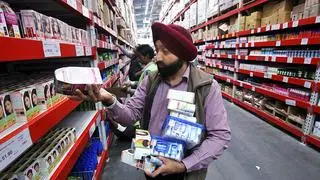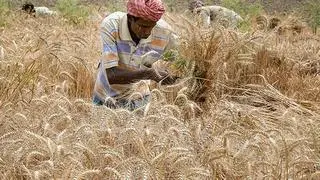India is preparing for the last round of its fight with the US at the World Trade Organisation (WTO) over the imposition of high import duties on its steel.
Major Indian steel producers such as Tata Steel, Jindal Steel and Essar Steel have lost their competitive edge in the US market because of steep punitive duties – called countervailing duties – imposed on hot-rolled carbon steel flat products.
India had dragged the US to the WTO’s Dispute Settlement Body in February 2012 after consultations with the country on removal of the “unfair’’ duties failed.
Legal experts are working on a response to the recent interim report of the Dispute Settlement Panel which is to be submitted by February 21 following which the panel will give its final report.
The US has been imposing CVD, a levy to neutralise Government subsidies, on steel for the last decade. Duties on Indian companies range from about 18 per cent on Essar Steel to over 500 per cent for companies such as Tata Steel and Jindal Steel.
Exports of carbon steel to the US have stopped completely because of the duties.
“The CVD is so high that there is no point in our continuing to export to the US. We stopped a number of years back. We certainly hope the WTO rules in India’s favour,” a representative from one of the affected steel companies told Business Line .
India is the fourth largest steel producer in the world with an output of 81.2 million tonnes in 2013.
In its representation to the WTO panel, India had challenged the US Department of Commerce’s allegation that the iron ore sourced by Indian steel makers from public sector NMDC is supplied at subsidised rate because it is Government-owned.
It argued that this is a wrong assumption as NMDC always sells at the prevailing market prices which are determined by their exports to Japan and South Korea.
The interim report, which was submitted by the Dispute Settlement Panel earlier this month, has recognised the arguments given by India, but has sought some more details.
“The interim report is more in our favour than the US’, but there are some questions that have been raised by the panel that we have to answer with conviction to get the final verdict in our favour,” the official said.
The legal team is working out stronger arguments to have a water-tight case to ensure a positive outcome.
According to the US, export restrictions on iron ore imposed by the country amounted to an effective subsidy to the domestic industry and such measures were used to improve supply and lower prices of inputs used by India’s rapidly growing steel industry.







Comments
Comments have to be in English, and in full sentences. They cannot be abusive or personal. Please abide by our community guidelines for posting your comments.
We have migrated to a new commenting platform. If you are already a registered user of TheHindu Businessline and logged in, you may continue to engage with our articles. If you do not have an account please register and login to post comments. Users can access their older comments by logging into their accounts on Vuukle.